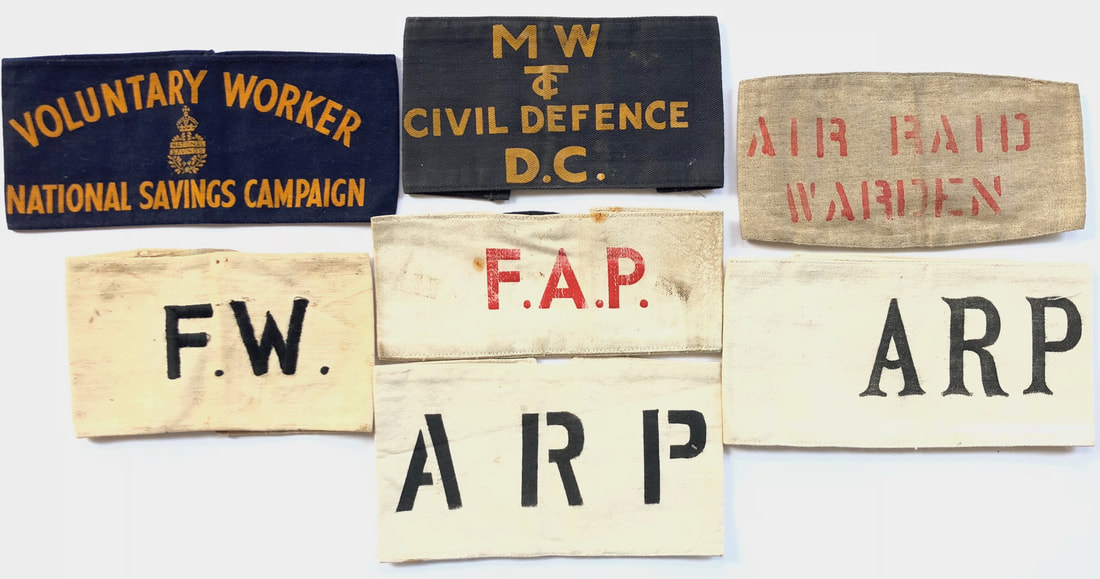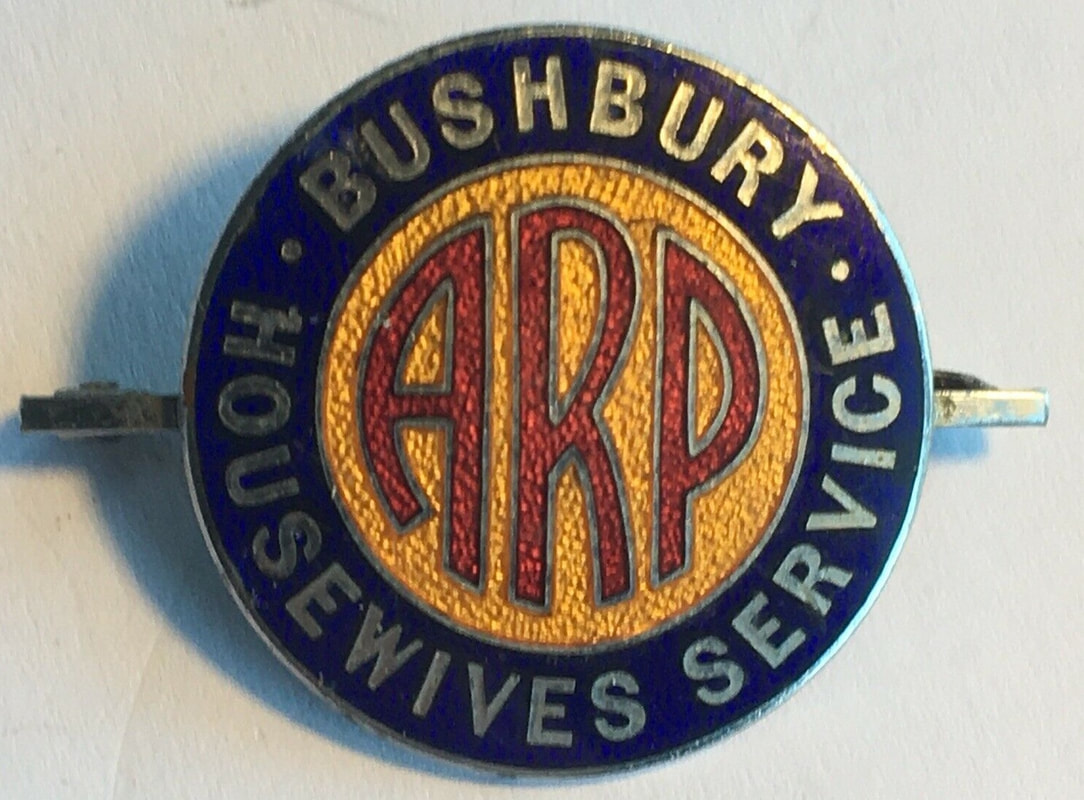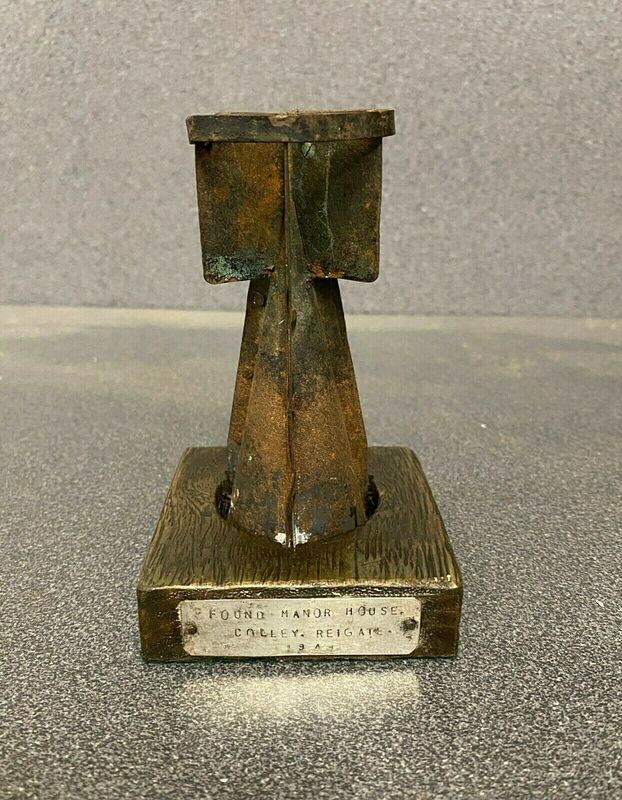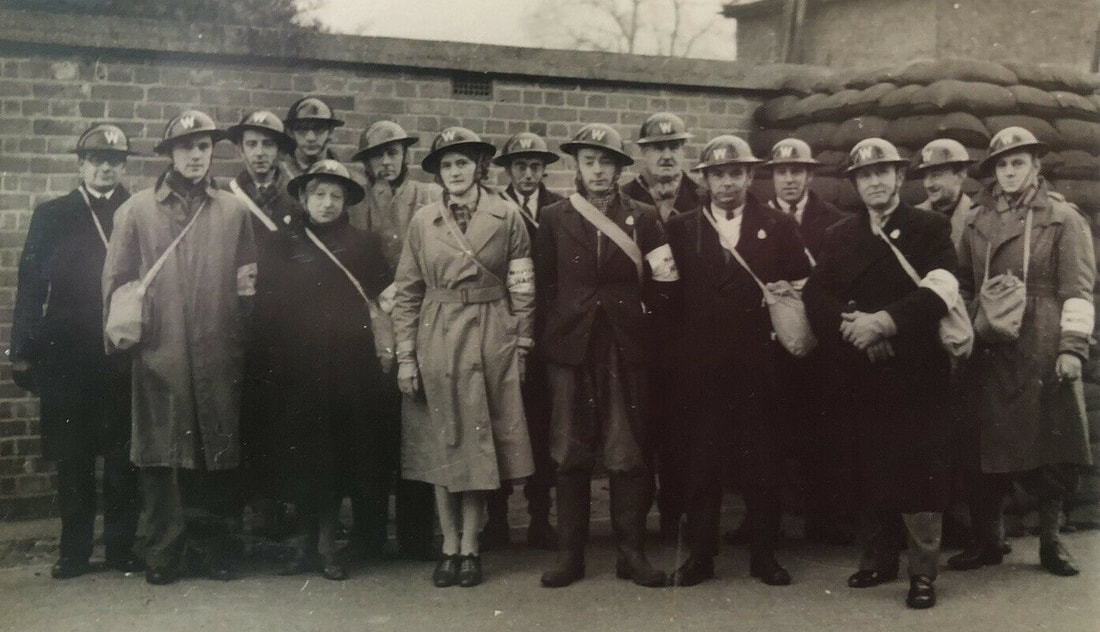|
A rather nice selection of WW2 and Civil Defence relayed armbands are coming up for sale via saleroom.com. There are some of the generic ones for Fire Watcher (F.W.), First Aid Post (F.A.P.) and ARP Warden varieties as well as a rarer National Savings armband. I believe the top middle is a decontamination (DC) armband for a business. A very nice grouping.
0 Comments
The very rare badge cropped up on eBay. I've never seen this badge before and it's an odd mix of ARP and Housewives Service. It's sure to get the collectors salivating and it'll go for a bomb I imagine.
There's been a number of fake (claimed to be original) ARP plaques and door signs on the market for a number of years. The more common ones are the circular and rectangular ARP Warden plaques surmounted by a crown. They are very light compared to the originals. The below fake has been posted on eBay several times. The giveaway here is that someone didn't do their research. There is no such thing as an "Air Raid Warden Post"... there's an "Air Raid Wardens' Post". There was always more than one person at a post. Also, back in the day, grammar and punctuation was much more stringently followed. If you find a sign with the missing apostrophe chances are it's a fake/reproduction. Stating something is a repro is fine, but calling the below 'original' is simply lying.
This area marking for Coventry is currently on eBay. The type of manufacture, without a border in this case, makes this a second world war and not post war type.
There's not a lot of information about this group portrait of wardens but I assume it's very early war (possibly pre-war) going by the lack of uniforms. They appear to have the basics issued to wardens of a tin helmet, gas mask carrier, armband and lapel badge, Location sadly unknown.
|
Please support this website's running costs and keep it advert free
Categories
All
Archives
June 2024
|
|
|
Copyright © 2018–2024
|





 RSS Feed
RSS Feed